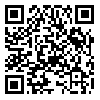Volume 14, Issue 1 (5-2015)
TB 2015, 14(1): 89-100 |
Back to browse issues page
Download citation:
BibTeX | RIS | EndNote | Medlars | ProCite | Reference Manager | RefWorks
Send citation to:



BibTeX | RIS | EndNote | Medlars | ProCite | Reference Manager | RefWorks
Send citation to:
Servat F, Morowatisharifabad M, Sadeghipoor M, Rezaeipandari H, Fallahian Firoozabadi M, Mehrabbeik A et al . Study Of The Effect Of Stress Management Skills On Anxiety Status Among Teachers In Meybod District High Schools On 2012. TB 2015; 14 (1) :89-100
URL: http://tbj.ssu.ac.ir/article-1-1471-en.html
URL: http://tbj.ssu.ac.ir/article-1-1471-en.html
F Servat 
 , MA Morowatisharifabad *
, MA Morowatisharifabad * 
 , MA Sadeghipoor
, MA Sadeghipoor 
 , H Rezaeipandari
, H Rezaeipandari 
 , MH Fallahian Firoozabadi
, MH Fallahian Firoozabadi 
 , A Mehrabbeik
, A Mehrabbeik 
 , Z Ghandari Hosseinabadi
, Z Ghandari Hosseinabadi 


 , MA Morowatisharifabad *
, MA Morowatisharifabad * 
 , MA Sadeghipoor
, MA Sadeghipoor 
 , H Rezaeipandari
, H Rezaeipandari 
 , MH Fallahian Firoozabadi
, MH Fallahian Firoozabadi 
 , A Mehrabbeik
, A Mehrabbeik 
 , Z Ghandari Hosseinabadi
, Z Ghandari Hosseinabadi 

Shahid Sadoughi University of Medical Sciences , morowatisharif@yahoo.com
Abstract: (5821 Views)
Introduction: stress is an effective factor on peoples practice and can threat the health of people and teaching is an stress full job in the world. Anxiety is a diseases or a psychological symptom of the stress. Researches show a direct association between stress and anxiety. Teacher's anxiety can effects the teaching quality and Barricade a continues communication between teacher and student during teaching. Some part of anxiety conducive factors is job related factors and some are related to their personality. As in the literature, only the anxiety status of teachers.
Methods: the quasi-experimental study was carried out on 100 persons of teachers of 8 high schools of Meybod districts which were selected randomly. Data collection tool was questionnaire including demographic section and spilberger situational and personality anxiety scale. Intervention program included 5 educational sessions of stress management which handled by a psychiatrist. A pre-test was carried out before intervention and the post-test carried out two month after intervention. Data were analyzed using t-test and ANOVA by SPSS 16.
Results: the mean of personality anxiety score among teachers were 38/74±7/33 before intervention and 38/53±6/56 after intervention and the mean score of situational anxiety was 40/65±7/10 before intervention and 38/87±6/90 after intervention. The intervention program was not statistically significant in reducing the personality anxiety of the teachers (p=0/70) but it significantly decreased the situational anxiety among them (p=0/019). As the percent of people with moderate situational anxiety decreased from 34/4 to 28/7. Moreover, the effect of educational program on the situational and personality anxiety according to age, gender, education level and teaching history was not different.
Conclusion: regarding the high level of anxiety among teachers and necessity of doing interventional program, planned stress management educations are successful in reducing anxiety. That programs which are presented to persons step by step, provide a cognition of the environment and it's stressful factors to individuals and finally reduces the stress and then the anxiety level. Determining the efficacy of the programs on personality anxiety requires studies with longer follow up.
Type of Study: Research |
Subject:
Special
Received: 2014/02/8 | Accepted: 2014/05/26 | Published: 2015/05/18
Received: 2014/02/8 | Accepted: 2014/05/26 | Published: 2015/05/18
Send email to the article author
| Rights and permissions | |
 |
This work is licensed under a Creative Commons Attribution-NonCommercial 4.0 International License. |



